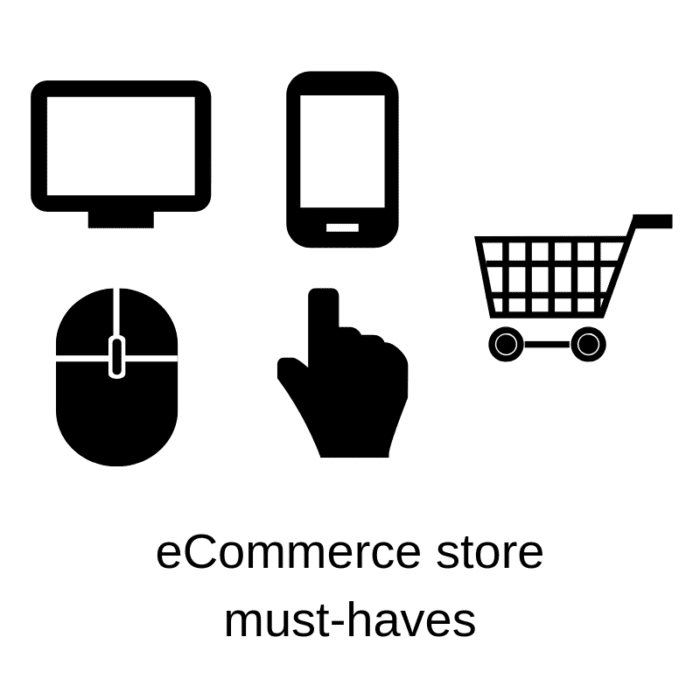Starting up in the e-commerce sector is a challenge because of market saturation, which is why many savvy business people opt to buy an already established e-commerce store
The exponential growth of the e-commerce sector cannot be argued with. The Office of National Statistics reported that the proportion of adults aged 65 and over who shop online trebled since 2018, rising 48% in 2018, a 32% increase on 2008. While the percentage among all adults who have bought goods or services online was 78% in 2018, and this is a figure set to grow further.
In less than a decade some of the largest e-commerce brands such as Amazon, eBay and Alibaba have grown to a colossal size and there is always scope for new brands to make their mark. Retail has changed for good due to the truly global nature of e-commerce. There are zero barriers or borders which gives e-commerce businesses plenty of opportunities, but also huge competition.
Starting up in the e-commerce sector is a challenge because of market saturation, which is why many savvy business people opt to buy an already established e-commerce store. Just make sure you are fully up to speed on all relevant e-commerce trends for this year, and beyond before taking this route.
Of course, there is a risk, as with all businesses, so you need to be 100% focused during the buying process and make the right decision when choosing your future business. There are many things you can do to improve sales to grow your e-commerce business but, first, here are five steps to buying the e-commerce store you want while mitigating risk and maximizing the chance of good returns.

1. Due diligence
Do your homework. Is there market demand for the business you’re looking at? Is there space for it to grow and your store to flourish? Competition is so high in this industry that you cannot afford to get it wrong so you need to do some in-depth analysis of competitors as well as your potential purchase.
Look at e-commerce businesses that have found their own niche market or niche product – this is where success is found as demand will be steady and competition much lower. In addition, there are likely to be plenty of new innovations.
Check out potential investments technically. Look at the site from a completely unbiased and analytical viewpoint. How does the site rank? Check out its statistics using Alexa and SimilarWeb, but also go more in-depth and look at their Google Analytics as closely as possible.
Examine their traffic to see if there are any patterns and trends. This will allow you to assess whether there is scope for you to improve and build on their current position. Where there’s scope for growth, it is worth looking further into the business.
Do not forget to look closely for any supply chain issues, as this is key to the success of any e-commerce business. Look into existing business relationships, costs and lengths of contracts already in place. Anything that doesn’t seem legitimate or quite add up should be analyzed in closer detail.
Be sure to look under the hood of the website to see what is powering it, whether Shopify, Wix, WooCommerce, Weebly or one of the many others. There are also various e-commerce guides to help you get your head around the confusing ins and outs of e-commerce stores, such as this review of the ever-popular Shopify that includes pros and cons.
2. Post-purchase costs
The costs of your new e-commerce business do not stop with the sale price and you need to seriously consider the post-purchase cost of your new investment. The overall value of the transaction incorporates many other factors including branding, website maintenance, digital asset costs, supply chain, marketing investment and more.
Dependent on the current setup of your potential investment, you may only need to make small tweaks. But in other instances, you may want to fully overhaul the look and feel of the business, so this is something you have to factor in.

3. Digital intelligence
Is your potential new business a success online? Again, you must research the current outlook for your investment in terms of digital presence, as this will have a big impact.
How successful is their content strategy? Are they active across social media? What networks currently seem to work for them and where are they missing out? Again, you should be looking for successes but also places where you can grow and develop the business. Don't forget to also examine at their conversion rates – are they converting traffic on their site into customers?
Look closely at their traffic sources — do they rely solely or too heavily on paid advertising? Where are they currently investing in adverts — across social media or search engines? Analyze the return on investment of their current spend and crucially look closely at how genuine the traffic is.
Most marketplaces where you can buy e-commerce stores provide verified traffic data and even revenues, giving you a clear picture of the store’s current position. Dig into their SEO and website analytics as you may be pleasantly surprised. If their SEO is poor then you have a big opportunity to improve things; if their SEO is working well then you'll have more time to focus on growing the business in other ways.
You should also make sure to test the customer service of the store in its current state. Ring them, email them and use any additional messenger services and social media channels they may use for customer service. Customer service is a big indication of how well a business treats its customers and how well (or not) it trains and helps its staff. It's also a big part when it comes to building customer trust.
Look where there may have been problems in the past and see if any negative feedback has been handled well. You don’t want to invest in a business that is already viewed in an extremely negative light.
Similarly, look at what they do well, how is their content creation? Do they engage well with their audience? These are things you can pick up and continue with. But, lastly and perhaps most importantly, look at how their checkout performs – what percentage of checkout processes end with an abandoned cart? Find out why.
4. The legal stuff
Legal compliance is not the most interesting element of any purchase, but it is completely essential. You need to make sure you have the full legal rights to run the new business and are in the position to do so.
This includes ensuring you obtain the intellectual property necessary to continue operating the business after purchase. It is very easy to fall foul of intellectual property law over issues you may not even have considered.
Does the individual you’re buying from own the copyright to all imagery on the site? What trademarks are in place and can you purchase them legally? Be sure to ask every question necessary to get the full legal picture before agreeing to any purchase.
5. The financials
The overall costs of any business investment must be examined in microscopic detail. You must forensically analyze all costs to the potential businesses you’re considering. This means looking into everything from paid advertising to stock purchases and web hosting to any email marketing subscriptions or other costs.
You will also need to check through any existing contracts the store has with external agencies, such as marketing companies and SEO agencies, and see if you are obliged to keep them on or there are break-out clauses or other provisions you can make use of.
You need to do the same when it comes to the company revenue and ensure everything adds up properly and there is nothing untoward before you get involved with the business.
Summing up
Buying a successful e-commerce store isn’t always possible but you can buy one which is well-positioned to grow and develop. With global sales revenues estimated to have reached $2.8 trillion, according to Statista, there may never be a better time to get involved in e-commerce.
Dan Purvis is Head of Marketing Communications at international digital payments provider,
Planet, and is also a Media Champion for the Alzheimer's Society, helping spread awareness and understanding of this cruel disease. With nearly 20 years’ experience, Dan has held senior marketing positions both in-house and agency side.








